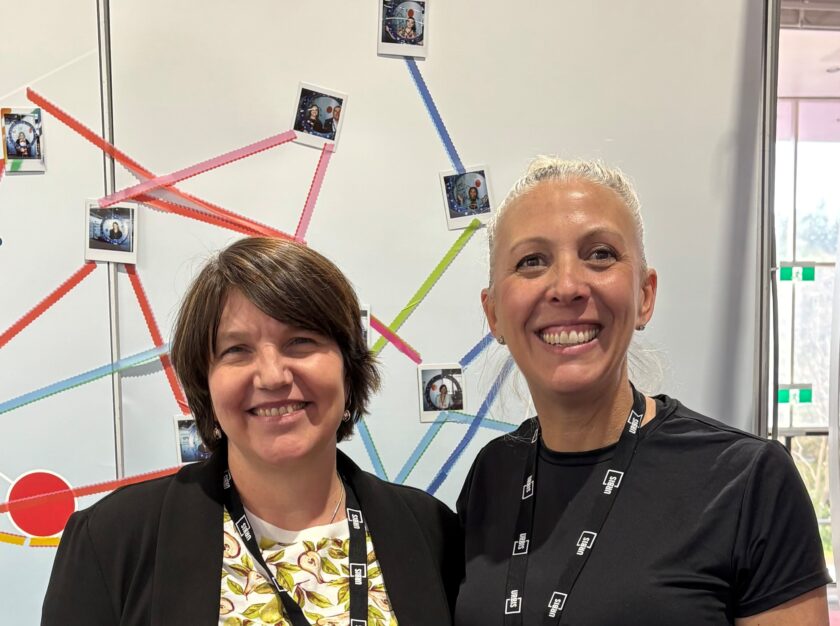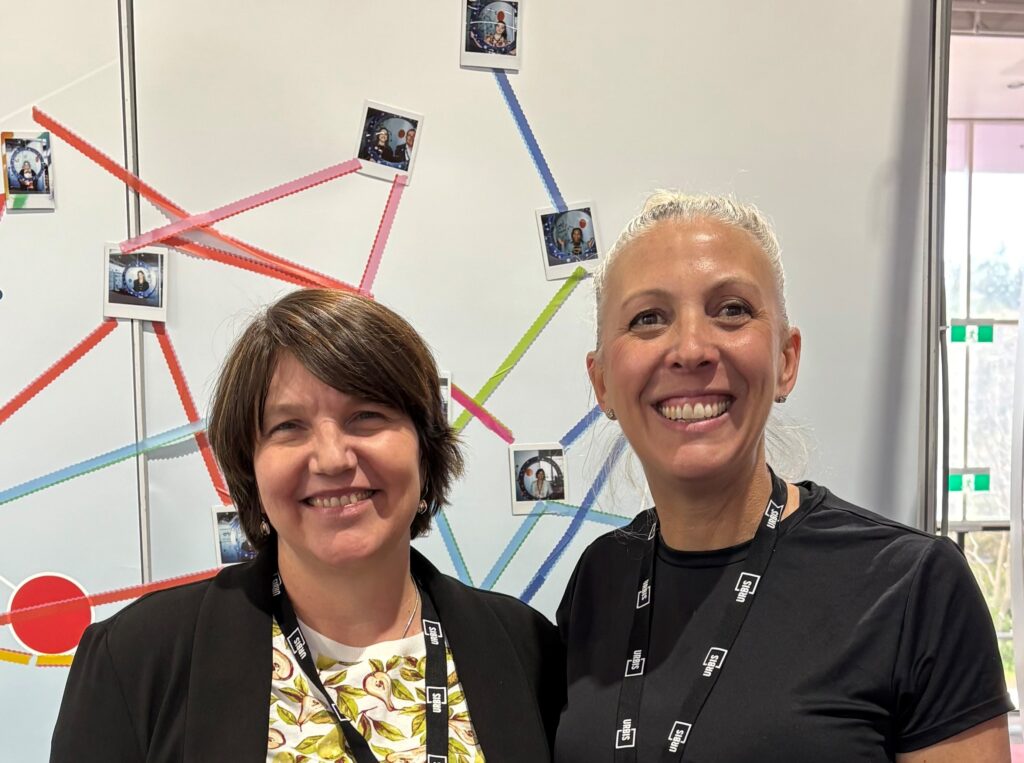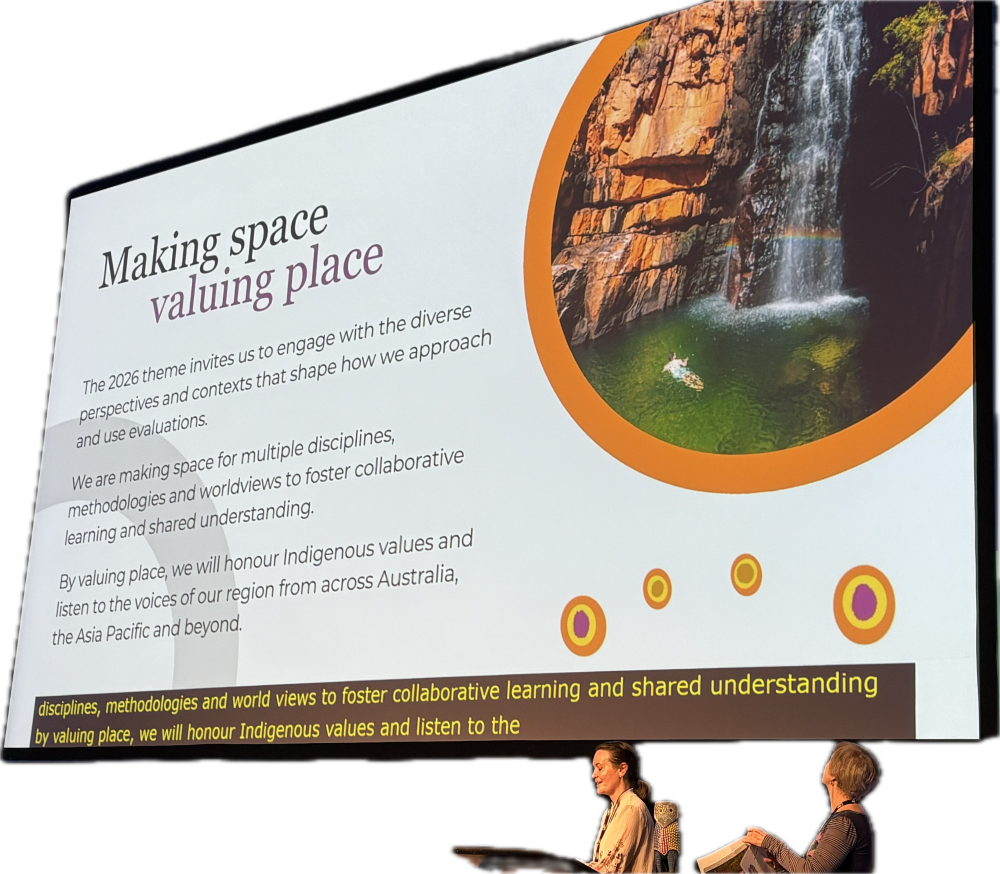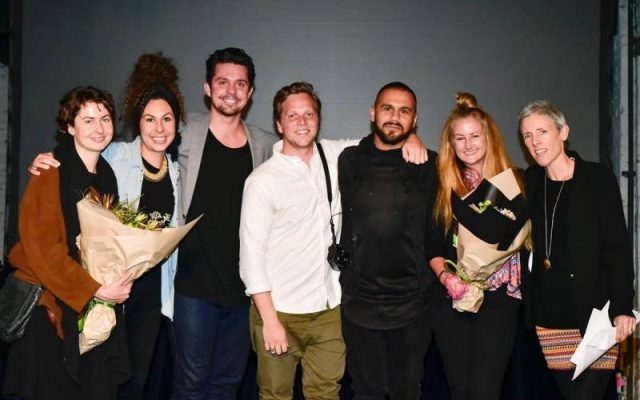
AES Conference Day 3 – of foxes, hedgehogs and owls
Who wanted to be an evaluator ever since they were a kid? Not too many of us, going by the show of (zero) hands at today’s Ignite presentation, Am I an Evaluator Yet?, from ARTD’s own Leah Carroll and Simon Alaba. But today I learned there’s a children’s book about evaluation, Eva the Evaluator* (featured in this morning’s keynote by Bianca Montrosse-Moorhead). So maybe that will change one day, when Eva’s readers are setting their career goals.
Bianca’s keynote asked us to ponder whether we dig deep or free range in our thinking tendencies and working preferences. Bianca drew on the fox and hedgehog metaphor by the Greek poet Archilochus: “a fox knows many things, but a hedgehog knows one big thing”. These are mindsets, or lenses, that can change with time and context – not boxes to put people in. In a nutshell, the ‘hedgehog’ mindset focuses on one sector or method, while the ‘fox’ mindset moves across sectors and may draw on a range of methods.
I think I may go hedgehog when I’m around fox thinking and go fox when I’m around hedgehog thinking – which either means that I seek balance or I like to play devil’s advocate… hmmm.
Bianca’s point was that these mindsets also shape what we understand evaluation to be, which creates the risk of getting ‘stuck’ in our default ways of thinking. The take-home was that we need both orientations for our strongest evaluation practice – hedgehog thinking to hold us accountable to standards, and fox thinking to remind us that context resists neat categories and requires a tailored and flexible approach.
And yes, Bianca acknowledged it would be great to adapt the metaphor to Australian ecosystems – so our challenge is to pick the appropriate creatures.
At lunchtime I caught up with my old friend Allison Salmon, from about 3 workplaces ago. Catching up with old friends, as well as meeting new ones, is a lovely bonus of the conference.

For me there have been a couple of standout themes across the sessions I’ve been to at the conference. One has been the need to hold multiple perspectives and methods – and sometimes tensions and discomforts – in our minds and hearts, to challenge and grow our own evaluation practice.
Second has been some inspiring examples of genuine, meaningful community engagement from the Aboriginal evaluators I’ve heard from. As Bobbi Maher said in the closing plenary: “Imagine if every policy, every program, was shaped by the people it touches.” It’s relevant for all our work.
Congratulations to the winners of this year’s evaluation awards, including my ARTD colleagues (along with Taylor Fry and the NSW Ministry of Health) who received the Public Sector Evaluation Award for the evaluation of the Towards Zero Suicides Initiatives. Check the AES website for all the recipients: AES Awards – Australian Evaluation Society
The owl** has now been handed to the Darwin committee and next year’s theme has been announced: Making space, valuing place. Hope to see you there!

* By Roger Miranda, illustrated by Birgit Stadler.
** The owl is an artwork handed to next year’s committee at the end of each AES conference.




